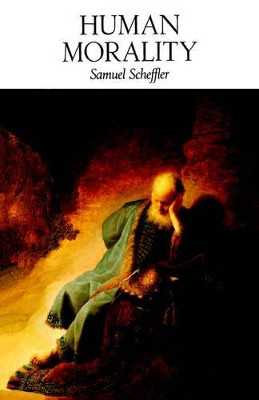Description
About the Author
Samuel Scheffler is University Professor in the Department of Philosophy at New York University. He is the author of Human Morality, Boundaries and Allegiances, and Equality and Tradition. He is a Fellow of the American Academy of Arts and Sciences. In 2012, he delivered the prestigious Tanner Lectures on Human Values at Berkeley, on which this book is based.
Reviews
...combined with Scheffler's eminently readable (and often humourous!) prose style, and the insightful and provocative exchanges that he has with his similarly-distinguished interlocutors, propels Death and the Afterlife into that rare class of philosophical books that are both valuable and enjoyable." * Analysis *
Clearly, this book brings together some impressive intellectual firepower." * Metapsychology Online Reviews *
With its careful arguments, counterarguments, and comparative evaluation of alternative hypotheses, this book is a superb example of the application of analytic philosophy to a subject that is of fundamental concern to everyone, not only to academic philosophers. Scheffler has opened up a new range of questions about life and death." * Thomas Nagel, New York Review of Books *
Thinking about the end of humanity provides insights into what we value, and why we value it...an insightful look at what death means to us." * Publishers Weekly *
[Scheffler's] wonderful Tanner Lectures, recently published as Death and the Afterlife, attempt to extract several striking lessons from our supposed reaction to the doomsday scenario....One of the many gems embedded in Scheffler's lectures is a nicely observed contrast between our sense of catastrophic horror in the face of the doomsday and infertility scenarios, and our relative calm in the face of the fact that everyone now living will one day be dead." * Mark Johnston, Boston Review *
Scheffler has produced a superb essay * indeed it seems to me about as good as analytic philosophy gets. It is entirely free from obfuscating jargon and other tiresome tricks of the trade, yet it is meticulously argued and demanding in exactly the right wayforcing us to think about hitherto unexamined implications of our existing beliefs. Though written with agreeable lightness and fluency, it is rich in psychological and ethical insight, and restores philosophy to its proper role of tackling the big structural concerns that are inseparable from the human condition.John Cottingham, Notre Dame Philosophical Reviews *
[Scheffler's] discussion of the issues with which he has concerned himself is fresh and original. Moreover, so far as I am aware, those issues are themselves pretty much original with him. He seems really to have raised, within a rigorously philosophical context, some new questions. At least, so far as I know, no one before has attempted to deal with those questions so systematically. So it appears that he has effectively opened up a new and promising field of philosophical inquiry. Not bad going, in a discipline to which many of the very best minds have already devoted themselves for close to three thousand years. * Harry Frankfurt, Princeton University, from "How the Afterlife Matters" (in this volume) *
This is some of the most interesting and best-written philosophy I have read in a long time. Scheffler's book is utterly original in its fundamental conception, brilliant in its analysis and argument, and concise and at times beautiful in its formulation. * Stephen Darwall, Yale University *
A truly wonderful and very important book. * Derek Parfit, Emeritus Fellow, All Souls College, University of Oxford *
Scheffler's book is a beautiful example of philosophical reflection on matters of great significance... He writes in a rigorous but engaging manner about things of obvious importance to us all. Death and the Afterlife is a model of how to make difficult philosophy intelligible to thinking people. * Times Literary Supplement *
Death and the Afterlife constitutes two remarkable achievements. The first is rare enough. Samuel Scheffler presents us with a set of reflections, the importance, and arguably the correctness, of which seem obvious in retrospect, but which most people will not have previously registered, let alone thought to be of considerable profundity. The second is even rarer. Scheffler appears to be the first person, in nearly 3,000 years of western philosophy, to get to grips, in a sustained and insightful way, with the particular questions his book raises. * Oxonian Review *
Scheffler's thesis has striking implications for the way we should think about the demands of our egos. Our self-interest doesn't merely extend, as we're used to thinking, to the preservation of ourselves and those we love. It extends to the lives of indeterminate future people we neither know nor love. * London Review of Books *
A brilliant example of how a thought experiment can make us rethink our values. * David Edmonds, The Big Issue *
Book Information
ISBN 9780190469177
Author Samuel Scheffler
Format Paperback
Page Count 224
Imprint Oxford University Press Inc
Publisher Oxford University Press Inc
Weight(grams) 232g
Dimensions(mm) 203mm * 137mm * 15mm







